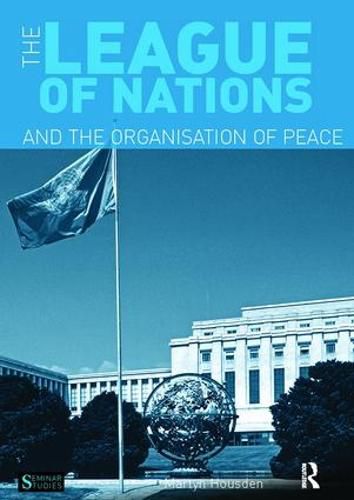Readings Newsletter
Become a Readings Member to make your shopping experience even easier.
Sign in or sign up for free!
You’re not far away from qualifying for FREE standard shipping within Australia
You’ve qualified for FREE standard shipping within Australia
The cart is loading…






The League of Nations - pre-cursor to the United Nations - was founded in 1919 as a response to the First World War to ensure collective security and prevent the outbreak of future wars. It was set up to facilitate diplomacy in the face of future international conflict, but also to work towards eradicating the very causes of war by promoting social and economic justice. The philosophy behind much of the League’s fascinating and varied roles was to help create satisfied populations who would reject future threats to the peace of their world.
In this new volume for Seminar Studies, Martyn Housden sets out to balance the League’s work in settling disputes, international security and disarmament with an analysis of its achievements in social and economic fields. He explores the individual contributions of founding members of the League, such as Fridtjof Nansen, Ludwik Rajchman, Rachel Crowdy, Robert Cecil and Jan Smuts, whose humanitarian work laid the foundations for the later successes of the United Nations in such areas as:
the welfare of vulnerable people, especially prisoners of war and refugees
dealing with epidemic diseases and promoting good health
anti-drugs campaigns
Supported by previously unpublished documents and photographs, this book illustrates how an understanding of the League of Nations, its achievements and its ultimate failure to stop the Second World War, is central to our understanding of diplomacy and international relations in the Inter-War period.
$9.00 standard shipping within Australia
FREE standard shipping within Australia for orders over $100.00
Express & International shipping calculated at checkout
The League of Nations - pre-cursor to the United Nations - was founded in 1919 as a response to the First World War to ensure collective security and prevent the outbreak of future wars. It was set up to facilitate diplomacy in the face of future international conflict, but also to work towards eradicating the very causes of war by promoting social and economic justice. The philosophy behind much of the League’s fascinating and varied roles was to help create satisfied populations who would reject future threats to the peace of their world.
In this new volume for Seminar Studies, Martyn Housden sets out to balance the League’s work in settling disputes, international security and disarmament with an analysis of its achievements in social and economic fields. He explores the individual contributions of founding members of the League, such as Fridtjof Nansen, Ludwik Rajchman, Rachel Crowdy, Robert Cecil and Jan Smuts, whose humanitarian work laid the foundations for the later successes of the United Nations in such areas as:
the welfare of vulnerable people, especially prisoners of war and refugees
dealing with epidemic diseases and promoting good health
anti-drugs campaigns
Supported by previously unpublished documents and photographs, this book illustrates how an understanding of the League of Nations, its achievements and its ultimate failure to stop the Second World War, is central to our understanding of diplomacy and international relations in the Inter-War period.